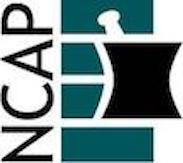Strategies for Harm Reduction in the Pharmacy Setting Series
Target Audience
NC Pharmacists, Technicians, Residents, and Student-Pharmacists
Description
The United States has been battling the opioid crisis for decades utilizing a variety of strategies. These strategies have included increasing access to evidence-based treatment of opioid use disorder (OUD), increasing access to naloxone, and increasing the development of harm reduction programs. As pharmacies serve as the intersection between providers and patients, pharmacists and pharmacy technicians have the ability to educate patients and link patients to support services. This series is designed to empower pharmacists and pharmacy technicians to feel confident in utilizing the tools they have to implement harm reduction strategies.
The first session will introduce pharmacists to evidence-based tools they can use to mitigate risk for their patients taking opioids. Pharmacists will learn firsthand how to efficiently implement these tools into practice to both screen and link patients to the appropriate care.
The second session will highlight strategies to improve communication between pharmacists and providers to reduce barriers to ordering requested medications. In response to the federal government’s recent changes to waiver training for qualified practitioners to prescribe medications for medication-assisted treatment (MAT), we anticipate seeing a surge in prescribing. This session will give you tools to communicate most effectively with providers in your area regarding prescribing these medications.
The third session addresses how to refer patients who inject drugs (legal or illegal) to local syringe service programs. The federal and state departments of health and human services have supported the development of syringe services programs to increase access to care, reduce the spread of bloodborne diseases, and improve health outcomes among people who inject drugs. Currently, North Carolina has at least 40 registered syringe service programs serving 80+ counties. This session will empower you to identify a patient’s need to be referred to a registered syringe service program.
Sessions & Speakers
Evidence-based Screening Tools in Pharmacy
Beth Caveness PharmD - Village Pharmacy of Hampstead, Inc.
Elizabeth Locklear PharmD - Rocky Point Pavilion Pharmacy
Improving Communication with Providers + Barriers to Ordering MAT Rx
Bayla Ostrach, MA, PhD, CIP
Harm Reduction Research & Evidence-Based Technical Assistance, Western North Carolina
Linking Patients to Syringe Service Programs
Lauren Kestner
Assoc. Director Harm Reduction Center for Prevention Services
Charlotte, North Carolina
Heather Roberts, PhD, RN, MSN
Director of Clinical Research, Atrium Health
This program is supported by the Health Resources and Services Administration (HRSA) of the U.S. Department of Health and Human Services (HHS) as part of an award totaling $1,000,000 with 0 percentage financed with non-governmental sources. The contents are those of the author(s) and do not necessarily represent the official views of, nor an endorsement, by HRSA, HHS or the U.S. Government.
Contact
[email protected]
 |